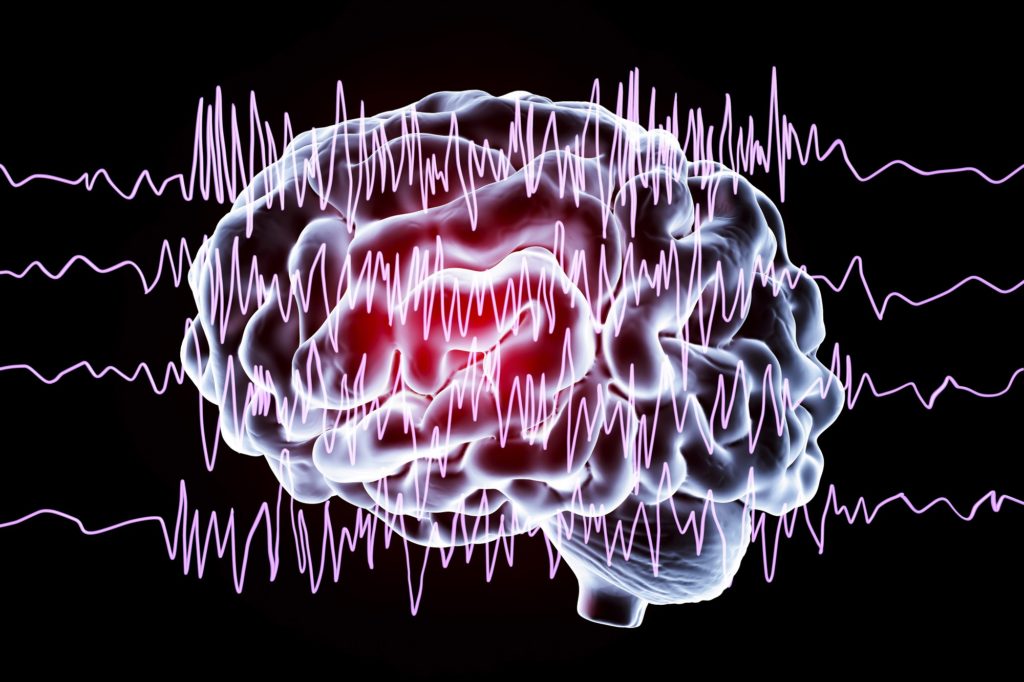Patients’ conditions can significantly affect their quality of life in many ways. Medical professionals should be aware of how these conditions can affect patients’ mental health. Epilepsy, partly due to the nature and effects of recurring seizures, can cause psychiatric comorbidities. Major depressive disorder, generalized anxiety disorder, and posttraumatic stress disorder have been identified as common comorbidities of epilepsy.¹
Health care professionals may need education about how epilepsy affects a person’s day-to-day life, in what ways the effects of a seizure can linger, and how the ensuing stress and depression can have an impact on the patient’s overall health.
- Neuroinflammation
A 2021 study in the International Journal of Molecular Sciences examined the impact of stress on patients with epilepsy by focusing on neuroinflammation.² Neuroinflammatory responses to seizures can potentially make an epileptic condition worse, and the researchers put forth a theory that neuroinflammation caused by both acute and chronic stress may make patients even more susceptible to seizures.
Continue Reading
Health care professionals may credit much of the stress that patients with epilepsy face to the disease itself: the stigma of the disease, the fear related to the unpredictable nature of seizures, and the lifestyle changes patients have to make. Working with patients to understand their stress and find a coping mechanism, with or without pharmacologic agents, can be important in patient management.
- Seizure frequency
The researchers note that chronic stress in patients with epilepsy often is directly related to an increase in seizure frequency. Increased frequency can be common in epilepsy if a patient has psychiatric comorbidities; anxiety and depression often predict an increase in seizures, and the inflammatory response to acute stress can possibly last for weeks after the stressor. Stress reduction mechanisms and psychiatric treatment should be included in harm management that seeks to reduce seizure frequency in patients.
- Disability
Patients with epilepsy who also have depression are at a greater risk for a reduced quality of life, which can manifest in a number of ways. For instance, these patients have a higher rate of disability than those without depression. The way depression is triggered or exacerbated can also manifest in different ways; the researchers claim that men may be more likely to be influenced by social factors, whereas women may be more likely to be influenced by the epilepsy itself.
- Decrease in sleep and activity
Stress and depression can lead to lifestyle changes in patients, including problems sleeping and decreased physical activity. A February 2021 study in Seizures looked at how young people with epilepsy feel the COVID-19 pandemic has had an impact on their care and mental state.³ Most young people surveyed in the study reported that they were sleeping less and performing less physical activity. Caregivers also reported increases in their own stress and anxiety. Sleep deprivation can lead to even more stress and depression, so determining how patients are sleeping could be important to managing their condition.
- Treatment-based anxiety
As mentioned earlier, much of the stress and anxiety in patients with epilepsy comes from the epilepsy itself and its treatment. Finding ways to manage both epilepsy and depression can be stressful. Some depression medications can even increase seizure risk. The fear of inconsistent or ineffective treatment may cause much of the stress a patient is feeling.
References
1. Lu E, Pyatka N, Burant CJ, Sajatovic M. Systematic literature review of psychiatric comorbidities in adults with epilepsy. J Clin Neurol. 2021;17(2):176-186. doi:10.3988/jcn.2021.17.2.176
2. Espinosa-Garcia C, Zeleke H, Rojas A. Impact of stress on epilepsy: focus on neuroinflammation-a mini review. Int J Mol Sci. 2021;22(8):4061. doi:10.3390/ijms22084061
3. Reilly C, Muggeridge A, Cross JH. The perceived impact of COVID-19 and associated restrictions on young people with epilepsy in the UK: young people and caregiver survey. Seizure. 2021;85:111-114. doi:10.1016/j.seizure.2020.12.024
